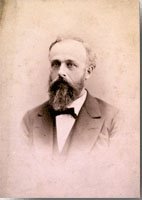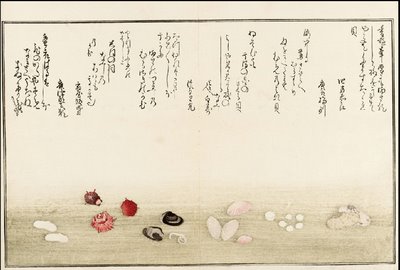the omori shell mounds: morse, part one
 edward morse got into a lot of trouble as a kid. he was thrown out of every school he attended, and occasionally punished harshly in the process when he, for instance, carved up his desk.
edward morse got into a lot of trouble as a kid. he was thrown out of every school he attended, and occasionally punished harshly in the process when he, for instance, carved up his desk.this gave him great freedom to roam the country sides and sea shores of maine, which is what he really wanted to be doing anyway. his discovery of a previously unknown species of snail (tympanis morsei) caught the attention of his elders and he was soon mentored and taught by the best of them.
in 1877 he decided to challenge himself with the largely unexplored seashores of japan. while he was looking fro brachiopods, he found much more as well--a more extensive archeological site, the omori shell mounds, than had been found to that date.

morse's success with both the zoological and the archeological fields in japan were rewarded with laboratories and professorships and as his information became more and more trusted, he was often asked to recommend other teachers from the west. together they set up programs for which the japanese were clamoring: zoology, archeology, sociology, biology, and even darwin.
his work in organization of the japanese imperial museum tied together many facets of his life, which i'll cover in part two.
(this wonderful utamaro print of shells is part of an extraordinary exhibit at the new york public library about japanese artists' books. this one was a collaboration of poets and the artist. many thanks to fade theory for the pointer!)
Labels: edward morse, Utamaro Kitagawa


0 Comments:
Post a Comment
hi, and thanks so much for stopping by. i spend all too much time thinking my own thoughts about this stuff, so please tell me yours. i thrive on the exchange!
<< Home